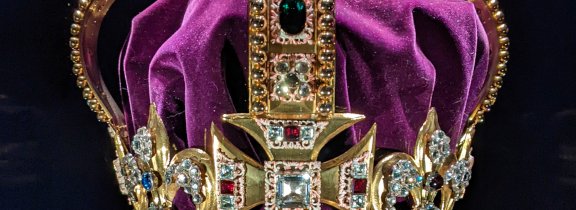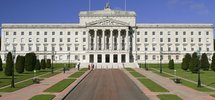| 6 mins read
In the Netflix documentary, Harry and Meghan, the Duke and Duchess of Sussex had two main targets in their sights: the press, and the Palace. But while considering themselves unique victims, they also shed light on monarchy as an institution, and the toll it takes on royal family members. In our book The Role of Monarchy in Modern Democracy, we found that lack of privacy is a serious problem across all European monarchies: they lack many of the freedoms which ordinary citizens take for granted. One possible solution is to reduce the size of royal families; another is to allow individual royals to opt out. But as Harry and Meghan have shown, opting out is easier said than done.
All royal families suffer from lack of privacy
Our book was a comparative study of the other monarchies in western Europe, as well as the UK: Belgium, Denmark, Luxembourg, the Netherlands, Norway, Spain and Sweden. We found that all royal families lead restricted lives.
The biggest restriction is that all royals suffer from constant intrusion of the press into their private lives. The worst cases come from the UK, where intense competition in the tabloid press has led to extraordinary invasions of their privacy. These range from Camillagate, when The People published a transcript of a late night conversation between Prince Charles and Camilla Parker Bowles in 1993; to illegal hacking by the News of the World of the phones of staff to Prince William.
Despite court cases in several countries, it has proved impossible to protect the royals from constant intrusion by the press. Princess Caroline von Hannover has even taken cases to the European Court of Human Rights, which ruled that ‘photos appearing in the tabloid press are often taken in a climate of continual harassment…’. Even if the press in one country are restrained, other countries may not follow suit: in 2012 topless photos of the Duchess of Cambridge turned down by British papers were published in France, Denmark and Sweden.
There is a symbiosis between monarchy and the media which makes it difficult for royals to criticise the press. If they do so, they risk getting a bad press; and monarchy depends on the press to maintain popular support. The Palace tries to cooperate with the press corps to ensure a steady stream of royal news stories. There is also a serious side to media reporting, with investigative journalism which keeps all the monarchies on their toes. It scrutinises their expenditure, their staffing, their use of helicopters, their fundraising, their choice of friends.
Royals lack five other fundamental freedoms
Privacy is not the only freedom which the royals lack. They also lack free choice of career; freedom of speech; to marry whom they like; of religion; and to travel.
In all European monarchies the heir and others close in the line of succession cannot choose a profession or pursue a business career. To escape these restrictions, they would need to step out of the line of succession and shed their royal connections. In practice few royals have done so.
This is compounded by further restrictions. The royal family’s public speeches are scripted by, or require clearance from, the government. Freedom to marry is legally restricted in all eight monarchies: in the UK the first six in line of succession require the consent of the monarch before marrying. There are constraints on the monarch’s freedom of religion in the three Scandinavian countries, and the UK.
Royals also lack freedom to travel where they like. In Sweden travel is restricted under the constitution, and in the other monarchies the royal family require consent to travel abroad. In the first month of his reign King Charles was told he could not attend COP27 in Egypt. Similarly, royals can be required to go on state visits to countries which they may not like. The Spanish monarchy has got into trouble for promoting trade deals in Saudi Arabia: links which helped Spain win big infrastructure contracts and arms deals. On these occasions, the monarch was simply acting on the instructions of the government but was heavily criticised.
Reducing the size of the royal family
European monarchies try to keep the royal family small: it can be just four people, as in Norway and Spain. The UK is following suit. King Charles has long desired a smaller, streamlined monarchy; but a smaller team means fewer royals to carry out public engagements, in the UK and abroad. 14 Commonwealth countries retain the British monarch as head of state, and expect regular visits. The King’s vision implies a further programme of change, toward a more domesticated monarchy.
Greater domestication could have implications for the careers and lifestyles of royal family members. Hitherto, there would have been siblings and aunts and uncles supporting royal functions in the UK and abroad. In future they could be expected to develop independent careers of their own. Such a possibility would need to be explained before they reached an age when they had become so attached to a privileged life of service that it would be painful to renounce. The experience of Harry and Meghan shows the difficulties of this.
Whilst the Netflix documentary conveys the impression that Megan and Harry have been uniquely victimised, the difficulties they face are shared by all the royal families of Europe. The monarchy makes extraordinary demands. It is, in truth, a gilded cage, and it is understandable if sometimes the inhabitants might want to escape.
Need help using Wiley? Click here for help using Wiley







